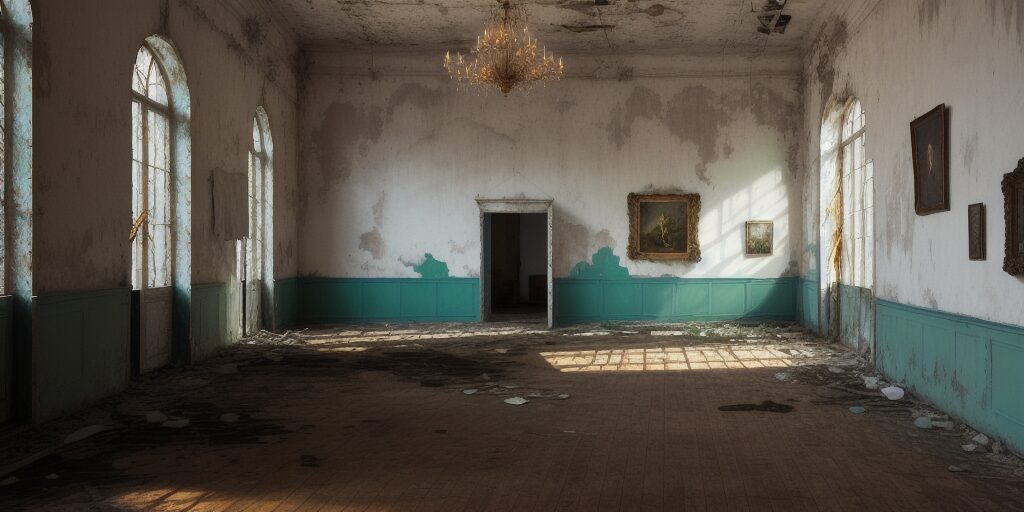The NFT art market is facing critical challenges. Let’s have an honest conversation about the issues and work together to implement solutions.
The NFT art market has garnered attention and excitement, but beneath the surface lies an uncomfortable truth. With a massive supply glut, a lack of true collectors, and a pricing crisis, the market is grappling with significant challenges. In this article, we will discuss these issues, share a critique of the current market dynamics, and propose solutions to create a more sustainable and vibrant NFT art community.
NFT Art Supply and Demand is out of sync
The Supply and Demand Imbalance A cursory glance at leading NFT art platforms like SuperRare and Foundation reveals fewer than 150 active auctions, while over 1.5 million NFTs sit with reserve prices. When we consider other platforms and blockchains, the supply glut becomes even more apparent. This imbalance has been exacerbated by the emergence of amateur artists, grifters, copycats, and exploiters, which has led to increased skepticism among collectors.
The current market dynamics have shifted, making it harder for collectors to find artists they are willing to bet on. The floodgates opened by the NFT boom have made it difficult for collectors to sift through the vast number of offerings, impacting the quality of the market.
NFT Art Prices are broken and unsustainable
The Pricing Crisis In the early days of the NFT art market, works from established artists like Beeple, FVCKRender, and XCOPY were priced affordably, making it easier for collectors to enter the market. However, as the market evolved, pricing has spiraled out of control. Many newer and less-established artists now price their work higher than those early pioneers, making it difficult for collectors to justify their investments.
Lets look at a few examples:
Beeple (a very well known and establisehd artist already) did his first drop on NG for $1.00. obviously people knew that the price would go up, but lest look at other examples.
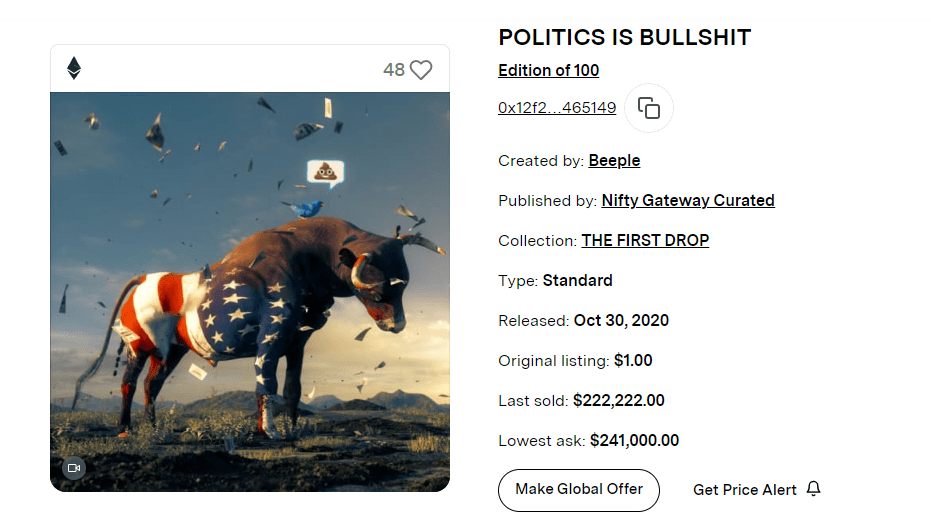
FVCKRender dropped Repressed in December of 2020 for $150
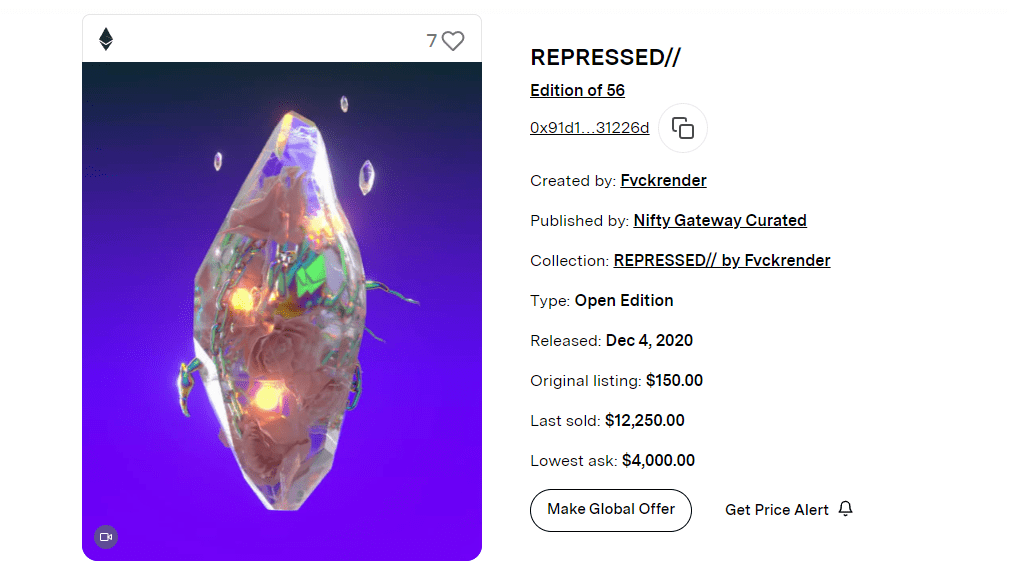
Jason Ebeyer dropped Gaze in November of 2020 for $50
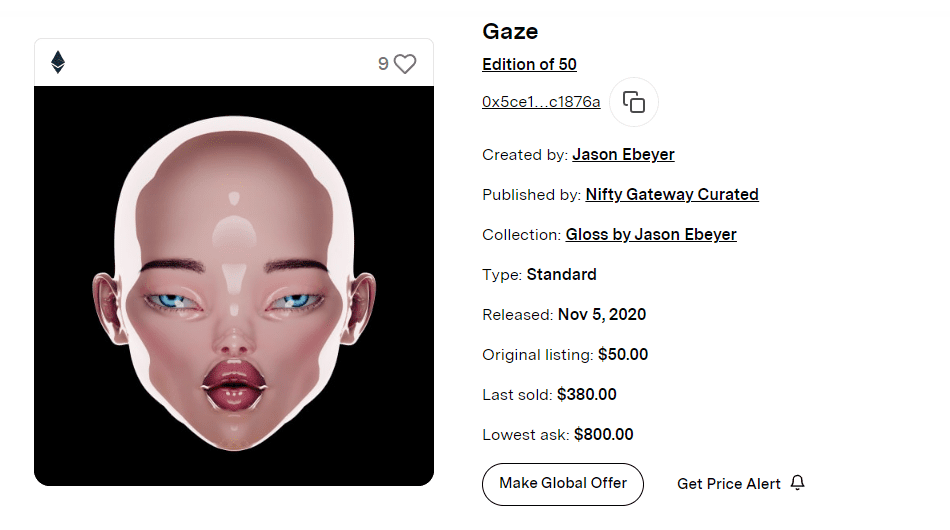
XCOPY did a drop in August fo $400.00
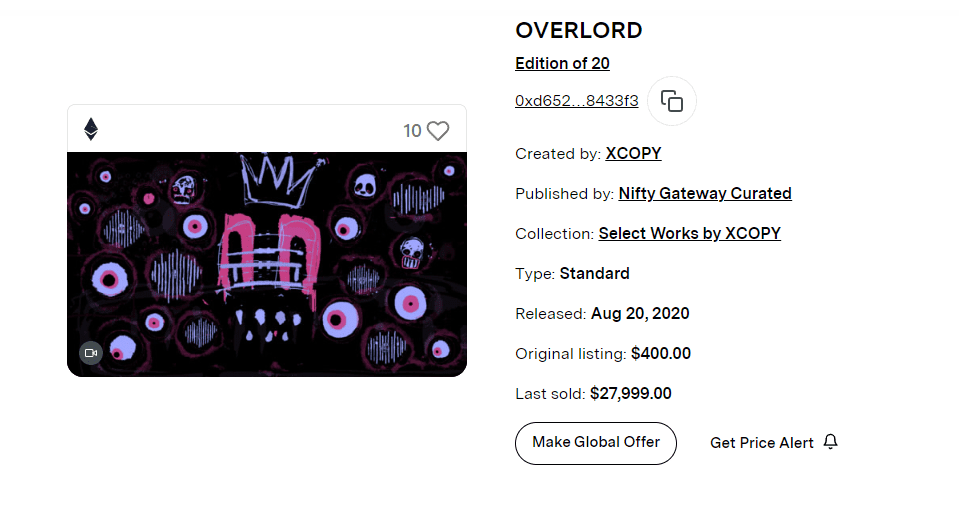
Trevor Jones dropped Bitcoin Bull Bronze for $200 in July of 2020
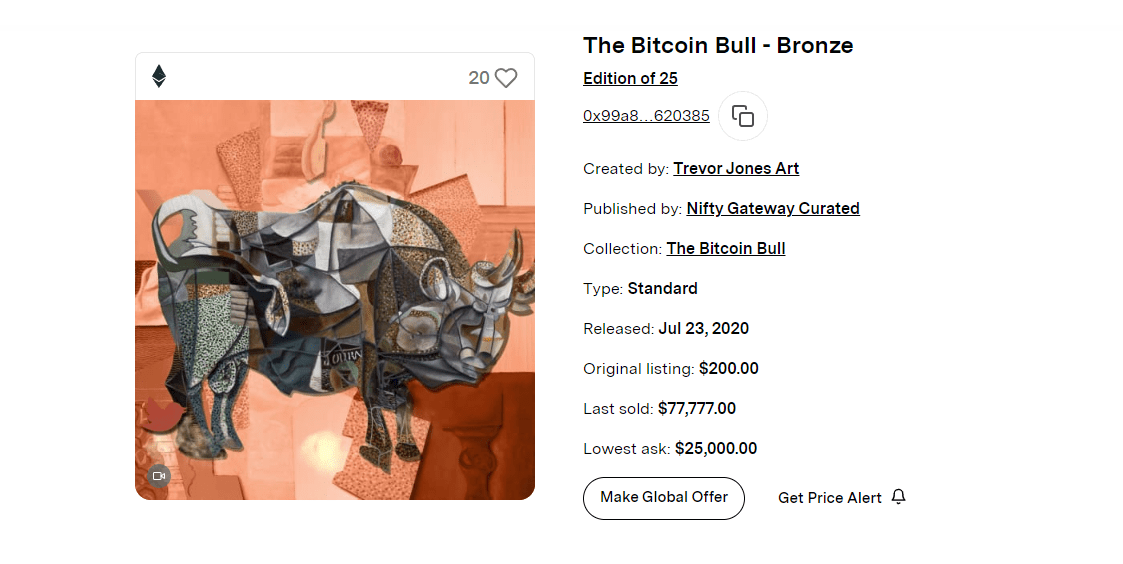
Blake Kathryn Dropped machina for $350 in Dec 2020
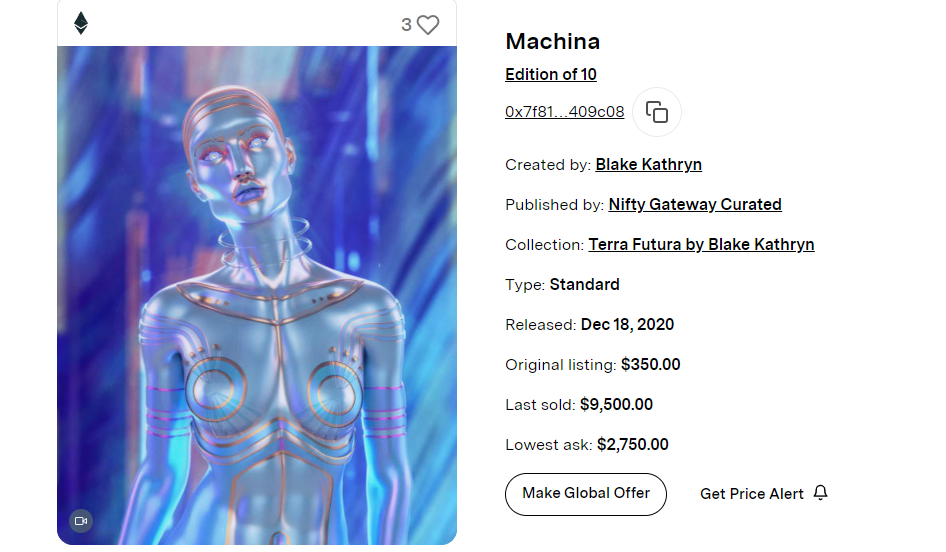
SlimeSunday dropped Last stand of the nation state for $40.00 in November of 2020
The inflated pricing has contributed to the boom and subsequent collapse of the NFT art market. Many artists need to realize that the current market conditions do not support the high prices they are setting. This has deterred collectors who want to support the space but have to make their bets wisely. Many NFT artists are pricing their work as if they are already established like the leading artists, charging $20 for a physical print and hundreds for a digital print. This has created a broken and skewed value chain that needs to be addressed.
The Path forward
The Path to Change So how can the NFT art community address these challenges and foster a more sustainable market? Here are some proposed solutions:
- Curation and Provenance: Improved curation is essential for collectors to discover and support artists worth investing in. Building a strong provenance and track record of success will also appeal to traditional art investors when they enter the NFT space.
Curation is absolutely critical, and platforms like NFTCulture are looking for more participants who can help improve their curation process.
- Realistic Pricing: Artists must adjust their pricing to better reflect the current market conditions. This doesn’t mean that artists should undervalue their work, but rather that they should be mindful of the impact that pricing can have on the overall market health.
Some artists may need to lower their prices to align with the market conditions, and not blame collectors entirely. Not everyone in the space made their ETH before the last crypto cycle, so collectors must be cautious with their investments.
- Collaboration and Community: A collective effort from artists, collectors, and enthusiasts is necessary to overcome the challenges facing the NFT art market. Collaboration, learning, and growth within the community will help create a thriving market that can stand the test of time.
The NFT art community should foster a spirit of collaboration and support, allowing the art to stand on its own merits without relying on gimmicks like burn mechanics and discord drops.
Working Together To Fix The Market
The Future of the NFT Art Market By addressing these issues and working together, the NFT art community can create a more sustainable and inclusive market that benefits everyone involved. Collaboration, realistic pricing, and improved curation will help attract new collectors and establish a stronger foundation for the NFT art market. As the community grows and evolves, it’s important to remember the value of art for art’s sake and not let market dynamics overshadow the true essence of creativity.
The NFT art market has immense potential, but it’s currently grappling with significant challenges that must be addressed to ensure its long-term success. By acknowledging these issues and working together as a community, we can create a brighter future for the NFT art space. It’s time to come together, learn from our past mistakes, and create a thriving ecosystem that celebrates creativity, collaboration, and authenticity.
The post From Boom to Bust and Beyond: Charting a New Course for the NFT Art Market appeared first on NFT CULTURE.
